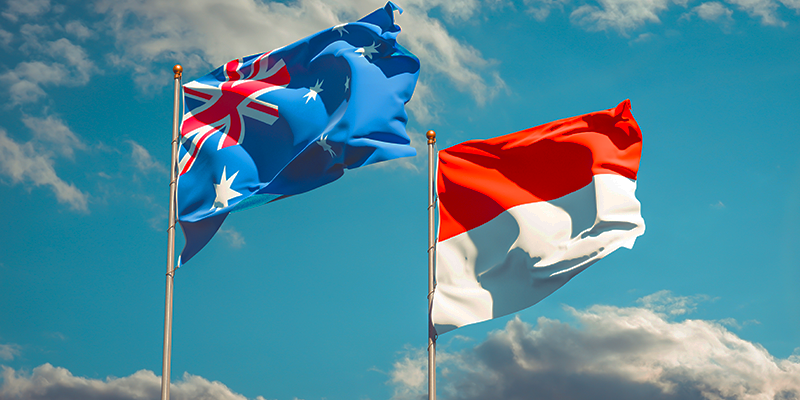
In a recent joint communique issued after the Australia-Indonesia Annual Leaders Meeting, both countries have reaffirmed their commitment to strengthening bilateral ties and expanding cooperation across various sectors. This comprehensive agreement aims to enhance bilateral trade and investment, foster collaboration across various sectors, and create opportunities for professionals and skilled workers. In this article, we will explore the key implications of the IA-CEPA, with a focus on the benefits it brings to specific industries in both Indonesia and Australia.
Enhanced Market Access and Tariff Reduction
Under the IA-CEPA, more than 99% of Australian goods exports by value will enter Indonesia duty-free or under improved preferential arrangements. This reduction in trade barriers provides Australian exporters, particularly in sectors such as agriculture, manufacturing, and mining, with better access to the Indonesian market. Similarly, Indonesian exporters gain improved access to Australian markets, including sectors like automotive, textiles, and electronics. This increased market access stimulates economic growth, fosters job creation, and strengthens bilateral relations.
Reciprocal Skills Exchange
The IA-CEPA introduces a reciprocal skills exchange program that allows professionals from both countries to gain work experience in each other’s markets. This exchange program covers various sectors, including financial and insurance services, mining, engineering, and information media and telecommunications. Australian professionals can contribute their expertise to Indonesia’s infrastructure and energy projects, while Indonesian professionals can gain valuable knowledge and experience in Australia’s advanced financial and mining industries. This knowledge transfer and cultural exchange foster collaboration and strengthen industry capabilities in both nations.
Workplace-Based Training Pilot Program
A key component of the IA-CEPA is the implementation of a workplace-based training pilot program. This initiative allows up to 200 Indonesians per year to receive workplace skills training in Australia for a period of up to six months. The program spans sectors such as education, tourism, telecommunications, infrastructure development, health, energy, mining, financial services, and information communication and technology. Indonesian participants can gain practical skills and industry knowledge, particularly in sectors like tourism and education, contributing to Indonesia’s capacity building efforts and promoting long-term industry growth.
Expansion of Work and Holiday Visas
The IA-CEPA facilitates the expansion of work and holiday visas for young Indonesians aged between 18 and 30. The annual limit for these visas will increase from 1,000 to 4,100 places upon the agreement’s entry into force, gradually reaching 5,000 places by the sixth year. This expansion provides Indonesian youth with opportunities to develop their skills through short-term work experiences in Australia. In sectors such as hospitality, agriculture, and tourism, Indonesian workers can contribute to Australia’s labor force while gaining valuable international exposure and cultural understanding.
Trade and Investment Cooperation
The IA-CEPA establishes a framework for trade and investment cooperation, supported by a jointly funded work program. This program facilitates technical assistance and capacity-building activities to strengthen commercial links and stimulate two-way investment between Indonesia and Australia. It fosters collaboration in various trade-related areas, including market access, customs procedures, intellectual property, and e-commerce. The IA-CEPA provides a conducive environment for increased investment in sectors such as infrastructure development, renewable energy, and technology, promoting long-term economic partnerships.
To read more about the Australia-Indonesia Annual Leaders’ Meeting last 4 July 2023, please click the Prime Minister Australia media statement link: Joint communique – Australia-Indonesia Annual Leaders’ Meeting | Prime Minister of Australia (pm.gov.au)
Conclusion
The Indonesia-Australia Comprehensive Economic Partnership Agreement (IA-CEPA) presents significant opportunities for bilateral economic growth and cooperation, with specific implications for various industries. From enhanced market access and tariff reduction to reciprocal skills exchange, workplace-based training, and expanded work and holiday visas, the IA-CEPA offers numerous benefits for industries such as agriculture, manufacturing, mining, tourism, education, and technology. The IA-CEPA sets the stage for a promising future of increased trade, collaboration, and mutual prosperity between Indonesia and Australia, fostering economic growth and enhancing the overall bilateral relationship.
As individuals and businesses navigate the implications of this agreement, seeking legal advice and assistance is crucial to ensure compliance with visa and immigration requirements. For professional legal guidance in any migration aspects and visa processing, No Borders Migration Law is ready to assist.
